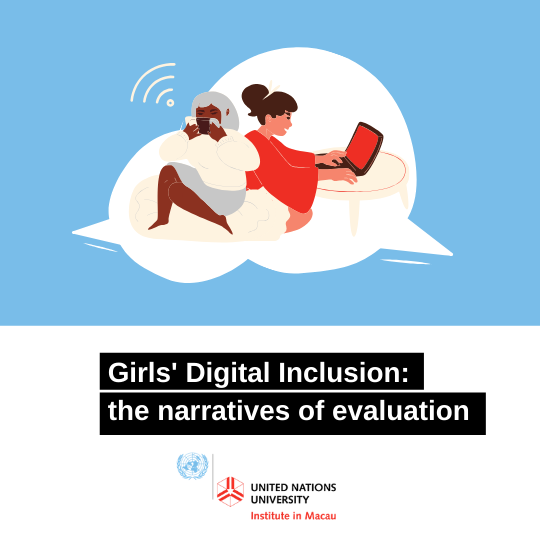ICTD Fellowship at the UN University: girls’ digital inclusion & the narratives of evaluation
- Alicja Pawluczuk
- Jun 12, 2020
- 2 min read
In April, I began my ICTD Fellowship at the United Nations University Institute in Macau. Over the next 12 months, I'll be exploring how girls' digital inclusion projects are being evaluated. You can visit my UMUMACAU's project website here.
Project Description
While there is extensive research on why girls’ digital inclusion programmes are important and what objectives should drive their implementation, there is limited information on how to critically evaluate their impact. There is also a dearth of research examining how those who manage girls’ digital inclusion projects (e.g. workshops facilitators, programme organisers) experience, perceive and manage their evaluation. The aim of this exploratory research project is to examine the narratives surrounding girls’ digital inclusion and to co-produce a set of recommendations for future gender-sensitive evaluation practices for “girls and ICT” projects.
Motivation
uring the last decade, there has been an increasing interest in non-formal educational programmes to address the gender digital divide. Non-
formal education initiatives, broadly defined as additions, alternatives and/or complements to formal education (UNESCO, 2020), have provided young girls with opportunities to explore ICT related skills and topics, which might be often omitted from the traditional curriculum. In many parts of the world girls-centred digita
l inclusion programmes have reported both qualitative and quantitative evidence of positive social impact (e.g. girls’ increased interests in STEM subjects, progression to tech-related careers).
However, along with this expansion of girls’ digital inclusion sector, there is increasing concern over critical analysis of their effectiveness and evaluation of both positive and negative social impact. Impact evaluation is considered an essential element of out-of-school digital youth inclusion facilitation. The knowledge produced from evaluation of digital inclusion projects is crucial to understanding girls’ intersectional needs with regards to digital technologies and consequently bridging the gender digital divide.
Prior research reveals that implementation and evaluation of gender digital initiatives are both complex and highly-contextual. Gender digital inclusion projects often aim to address a wider range of problems related to girls capabilities to acce
ss and effectively utilise ICTs within and between countries, regions, sectors and socio-economic groups (Borgonovi et al., 2018). Consequently, the outcomes and thus narratives of their evaluation might be shaped by existing social and cultural norms as well as structural power dynamics (e.g. funding criteria).
Meaningful evaluation insights about what works and what does not when engaging girls in ICT, can produce critical insights into girls’ current and future digital inclusion needs and aspirations.
However, more research is needed to examine the narratives surrounding impact evaluation of girls’ digital inclusion practice. This research project aims to explore this research gap. To this end, this project aims to address the following questions: What are some of the narratives surrounding the existing evaluation practice used in girls’ digital inclusion programmes? And, to what extent can we collectively improve our evaluation practice, so it produces knowledge that could shape future digital inclusion strategies?
PROJECT STAGES This project will be carried out in three consecutive stages:
(1) a scoping review of existing literature (e.g. academic articles, evaluation reports) (2) engagement with girls’ digital inclusion practitioners (3) analysis and co-creation of girls’ digital inclusion evaluation recommendations




Comments